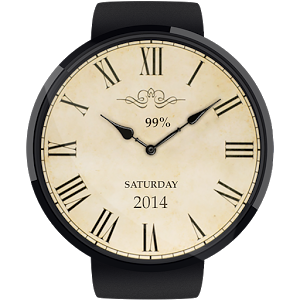 Punctuality means different things in different cultures. A meeting at 11.00 in some societies could mean any time that day (later never earlier) and to be on time might look servile. Here we accept that getting together at an agreed time is fairly rigid. “Catch you for a coffee at 2.00,” would mean between 2.00 and 2.05. Meetings, business and medical appointments should start on time and therefore arriving five minutes beforehand is essential and respectful. Accepting an invitation to eat together at someone’s house at 7.00 would mean between 7.05 (not 7.00) and 7.15. Too early and you catch the hosts in disarray. Baroness Nadine de Rothschild offers the “quart d’heure de politesse” (a quarter of an hour for politeness.) A cocktail party can only swing if everyone gets there within the first half hour. (Come on, they only last for a couple of hours so respect that you've been asked.) We’ve all had problems with arriving on time – road works you knew nothing about, a booked taxi that failed to arrive. (But Uber and mobiles have surely fixed that?) But failing disaster, being on time is a gesture of respect and grace. Your time is not more valuable than anyone else’s and you’re not “entitled” to allow your inefficiency to involve others. "I'm late because I was making you a cake," won't wash with me. I'm excited and looking forward to seeing you. So here’s a social and diplomacy dilemma I experienced recently. A friend (I’ll call him Ludo) was invited to eat with us at 6.30 p.m., making six at table. (Yes dreadfully early but we’re all getting older and as Lizzie says, “We all need a drink by then”.) Ludo texted to say he’d be there at 6.15. Now, Ludo is generous to a fault. A bachelor, he flings French Champagne (tautology) and flowers at an invitation with sincerity and abandon. I texted back to say (tactfully) that I was happy he could join us and that 6.30 would be fine. We waited and waited, not knowing whether to open another bottle or call the hospital. He arrived finally at 7.28. Why? Dressed and ready to leave, a friend he hadn’t seen in a while rang his bell and Ludo invited him in and offered him a drink. Guests shouldn't have to wait more than forty minutes to sit down. Should we have sat down and started? Where does the loyalty or obligation lie? Are there any concerns about the others waiting? When can we say no? (What would Prince Harry have done? What would you have done?)
8 Comments
Roger Vincent
19/2/2018 06:44:42 pm
I think arriving late shows enormous disrespect to the host(ess). It is also Ill-mannered, crass and demonstrates an unfortunate lack of manners and ill-breeding.
Reply
ROSA MATTO
20/2/2018 11:55:00 am
Clearly Ludo has a phone and knows your number, he has already contacted you once to let you know he'll be there early.
Reply
Paacale
22/2/2018 09:05:27 pm
I hope Ludo doesn’t read your blog, or maybe I hope he does and learns something!
Reply
Rosie
23/2/2018 02:56:00 pm
Just plain rude and selfish. Hopeully he was scratched from future party lists
Reply
"Ludo" is not rude and selfish. The problem is deeper. He has Catholic Guilt and the inability to say no. (Think #metoo. While the aggressors need to be stopped, we also need to take control and say no.) I will take him in hand.
Reply
Luci
1/3/2018 10:16:21 pm
"Manners Makyth the Man"
Reply
3/12/2018 10:54:59 pm
Punctuality is an independent vital ethology. It is the politeness of kings. Water is essential for our life. Likewise, punctuality is important for accomplishing success. Without punctuality, you may achieve success occasionally, but if you want to feel the same in the real form then you have to be punctual. Punctuality allows you to manage your time properly. No doubt, time is one of the most priceless resources. Thus, punctuality should be everyone's foremost significance to utilize the allotted time completely.
Reply
4/12/2018 08:59:53 am
Nice observations, Kermit. Punctuality shows politeness and consideration but as you point out, it's also personally beneficial for personal success.
Reply
Leave a Reply. |
Categories
All
|
 RSS Feed
RSS Feed
